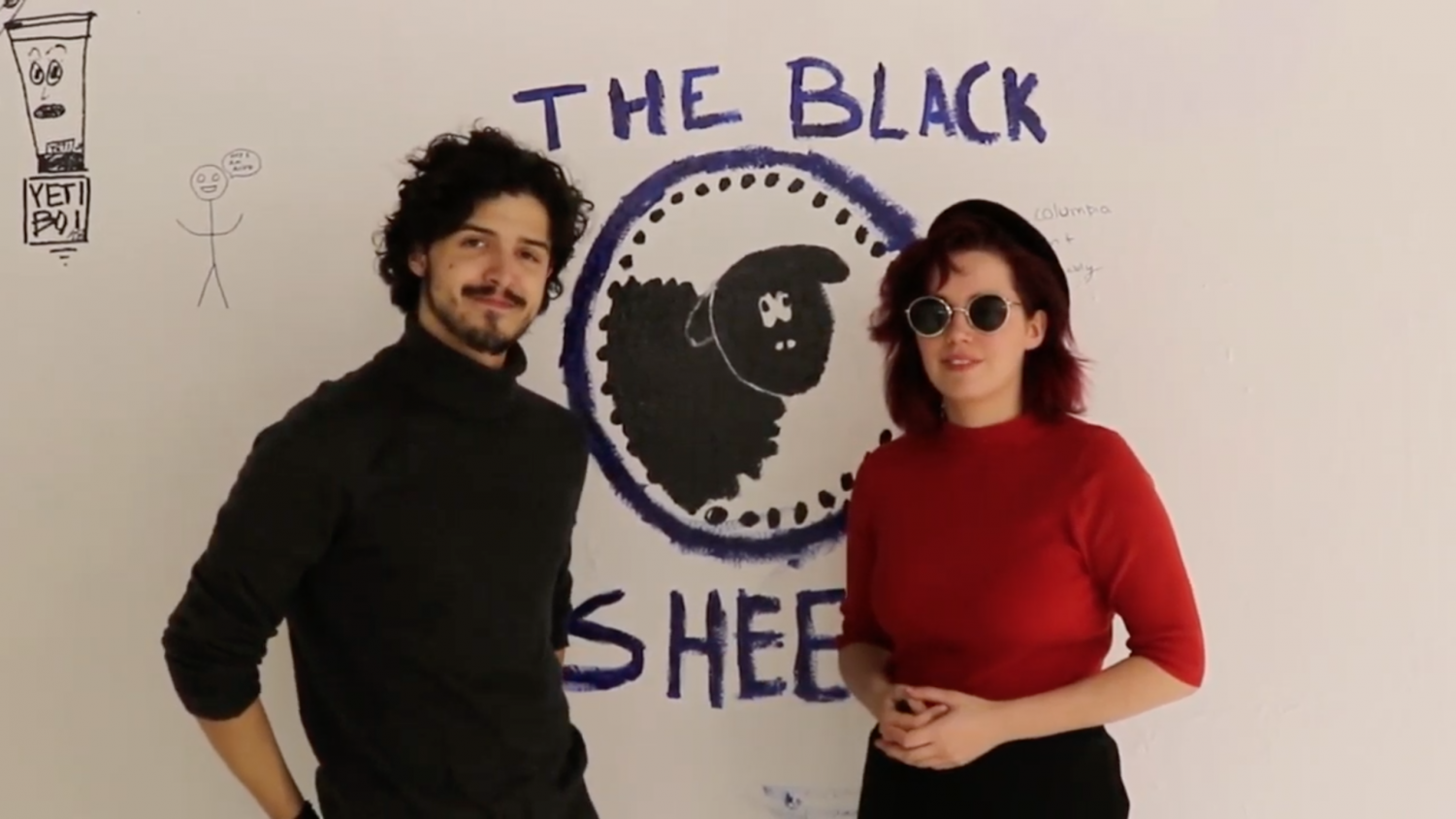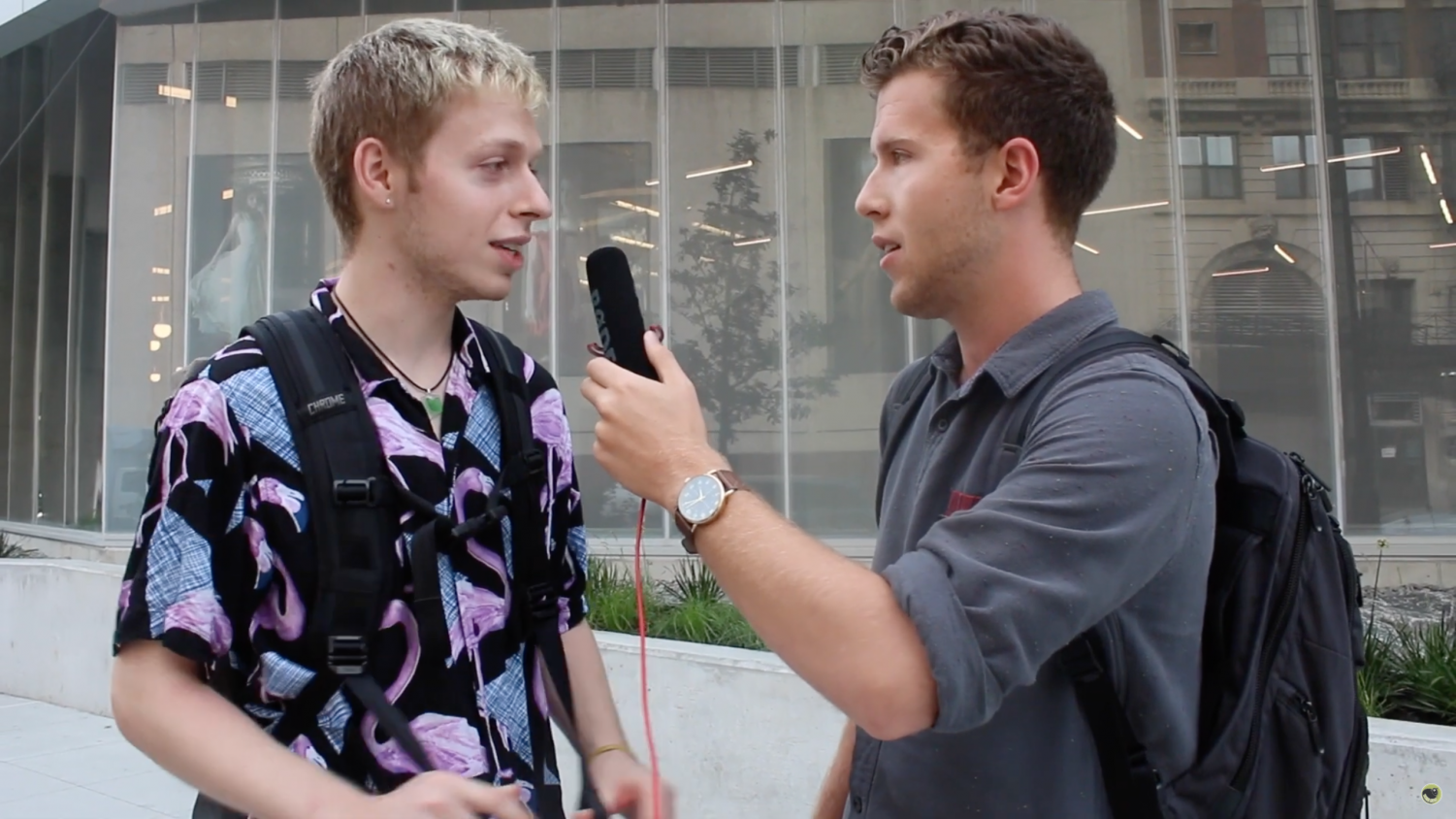Meet The Chronicle’s fiercest competition: The Black Sheep
October 18, 2019

The Black Sheep is a group of 12 Columbia students who create satirical content, including videos and memes.
At 2 a.m., one of the members of The Black Sheep Columbia is filmed drunkenly eating a stranger’s food off the Chicago Transit Authority train floor. Later, he pulls a thread of floss from a fast food burger after biting into it. Upbeat music plays in the background, creating an even funnier aspect to the Tasty Transit videos.
This is but one stomach-churning skit produced by The Black Sheep, a group of 12 Columbia students who create satirical content, including videos and memes. Although the group is taking a break from the Tasty Transit videos, Corbin Eaton, senior cinema art and science major and The Black Sheep’s video production manager, said the series might make a comeback depending on how “his liver reacts.”
Another series widely viewed by Columbia students is their person-on-the-street video interviews, which have been restructured over the past few years to include students, Eaton said.
One of Eaton’s favorite on-the-street videos is where he video chats his grandma to go along and ask students embarrassing questions, such as if students have pooped in the new Student Center yet.
The Black Sheep Columbia is a branch of the larger company The Black Sheep, which has a presence on more than 200 campuses nationwide, according to its website. It is not afraid to poke fun at the college and popular topics happening around campus and the city, either.
When the Student Center, 754 S. Wabash Ave., was being built, Eaton’s grandma said, “I was at the Kennedy assassination and this is a bigger s–t show than that.”
Robert Morvay—senior acting major and The Black Sheep’s social media manager and campus team manager—said they really try to “keep an ear to the ground” and listen to what is going around on campus for ideas on satirical content. As Morvay oversees all of The Black Sheep’s social media accounts and schedules their content, he actively looks at engagement on posts to see what topics are sticking.
One of the group’s most popular subjects to poke fun at is President and CEO Kwang-Wu Kim.

One Black Sheep series widely viewed by Columbia students is their person-on-the-street video interviews, which have been restructured over the past few years to include students.
“[However,] making fun of Dr. Kim is not getting likes anymore because he is receiving goodwill from students because of the Student Center. What used to happen is we used to get a lot of likes on stuff where we s–t on the Student Center before it was made,” Morvay said. “Now, we get a lot of likes on content where we praise the Student Center.”
The new subject of ridicule seems to be Roosevelt University’s recently-announced merger with Robert Morris University.
One meme heckling the merger shows two people fighting with each representing Roosevelt and Robert Morris. A person, who represents Columbia, stands in the background, observing the situation unfold while appearing to be doing drugs. The caption on the post reads: “Have fun with that merger!”
They work hard to make sure none of the content they produce goes too far, though.
Eaton’s motto is “when in doubt, cut it out.” He said it can be difficult, though, because they are trying to keep up with their satirical and critical style students love, but they still have to make sure they are not crossing the line.
Eaton jokingly said his parents are “not proud” of him and are “disappointed all the time” because of the content The Black Sheep posts.
He said they make sure not to pick on individual students, instead focusing on the institution as a whole. For instance, they did not want to make fun of the student who lost $2,000 in the phishing scam, as reported Oct. 7 by the Chronicle. Instead, they wanted to point out Columbia’s “inactivity toward helping that person,” Morvay said.
The group has never received negative pushback from Columbia administrators, and some of the faculty even enjoy the content, Morvay said.
“Everyone seems to be supportive and knows that we’re just goofing around,” he said. “We don’t actually have any ill will for anyone.”
They even get suggestions for improvement. One viewer suggested adding captioning for videos to make them accessible to Columbia’s deaf community, and now that’s something they are going to provide.
“We come from a very diverse group of very talented and funny individuals,” Morvay said. “[And] people speak their personal truth and let jokes out in their way.”







